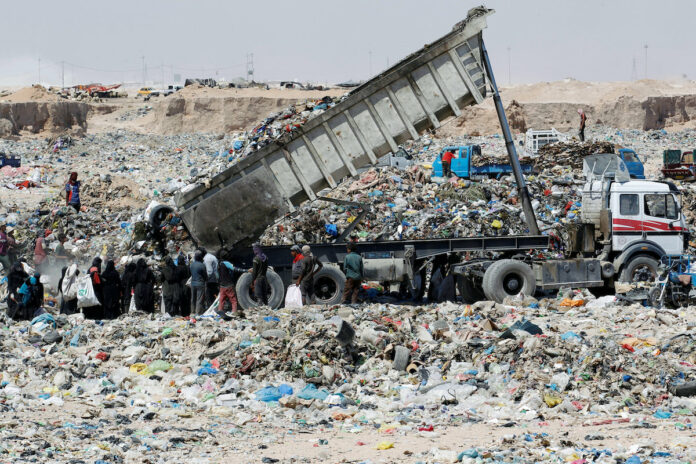Saif Diaa Dair – graduate student in the Ph.D. program at Al-Nahrin University
Imad Salah Sheikh Daoud – Professor of Public Policy and Sustainable Development at Al-Nahrin University
introduction:
The problem of pollution and waste has aroused human interest since the very beginning of civilization on Earth. The Mesopotamian civilization and the Levant have known sewage disposal systems for 6500 years. According to archaeological studies in the Bekaa, which also documented the existence of sewage systems and waste management during the ancient Roman Empire, when architects of ancient Rome created a vast network of sewers. The need for freshwater eventually led to the development of water channel technology. The wider extension of aqueducts generally used lead pipes, while pipes within cities themselves were often made of ceramic, wood, and leather. In addition, archaeological sites and ancient texts show evidence of the first European waste management task force. The duties of this force include collecting stored waste from homes not connected to the sewage network, and selling waste to farmers for profit.
Compared to the systems used by the Fertile Crescent civilizations, the waste management systems of the ancient Roman Empire were largely socially divided, relying heavily on the socio-economic status of civilians. This stratification can also be seen within the waste management systems of ancient Egypt as well as in the Aztec Empire.
In the modern era, the problem is one of the greatest environmental challenges facing the world, requiring comprehensive and effective solutions to deal with its serious effects in a healthy and environmentally friendly manner, with the first efforts initiated by the solid waste management system organized in London in the late 18th century. which, in the mid-19th century, as public health debate grew, became law under the title Removal of Inconvenience and Disease Prevention of 1846, which allowed for the provision of regulated waste management in London.
Following the dramatic acceleration of technological progress and increased consumption, the volume of waste produced has increased, its negative impacts on the environment, public health, and the economy have worsened, and negative changes in ecosystems and natural patterns have escalated. The challenge of climate change and its catastrophic impact on our planet, as a result of carbon emissions from various sources, has become a greater need to give importance to the recycling of solid and liquid wastes as one of the effective solutions for controlling these emissions and achieving sustainable development, It is undeniable that this problem requires a high level of cooperation and coordination between States and stakeholders. accompanied by a strong commitment to environmental policies aimed at improving the quality of life, Therefore, the discussion of policies to deal with the waste crisis is one of the current vital themes for strengthening global efforts to combat this serious environmental problem.










